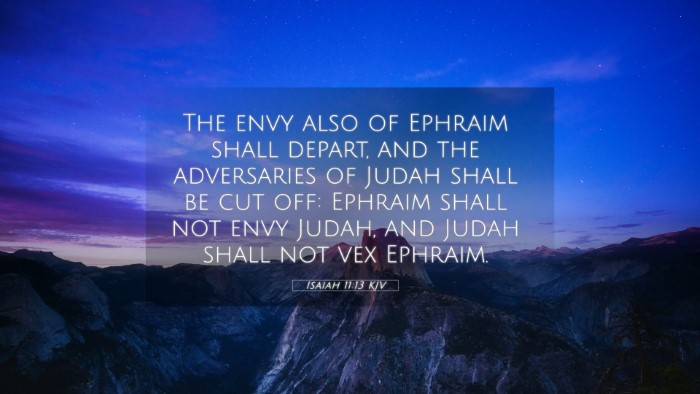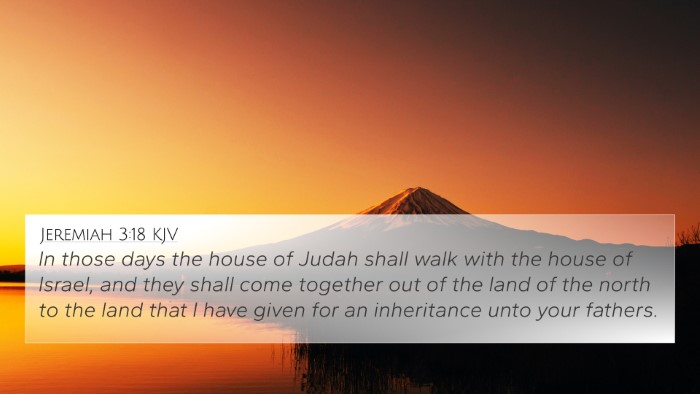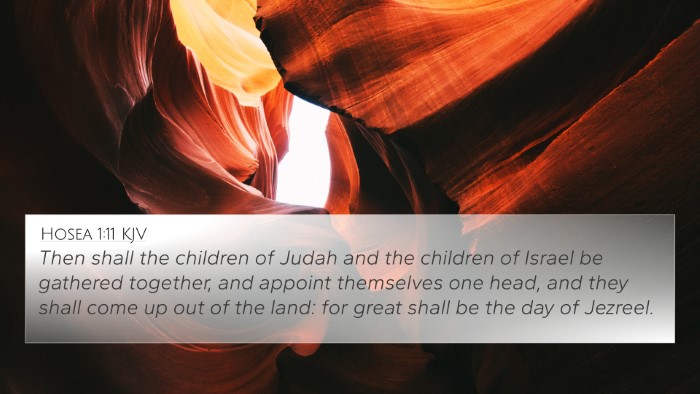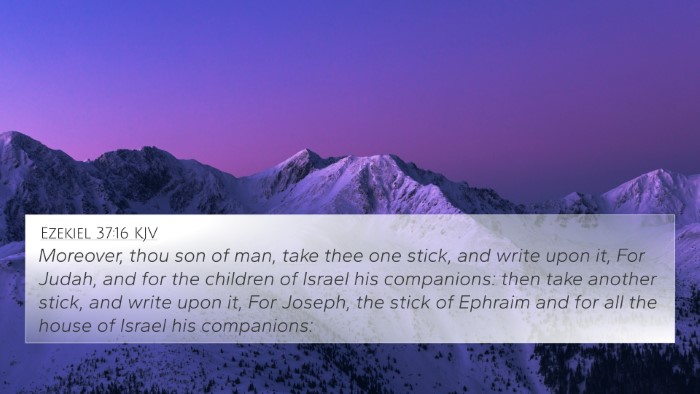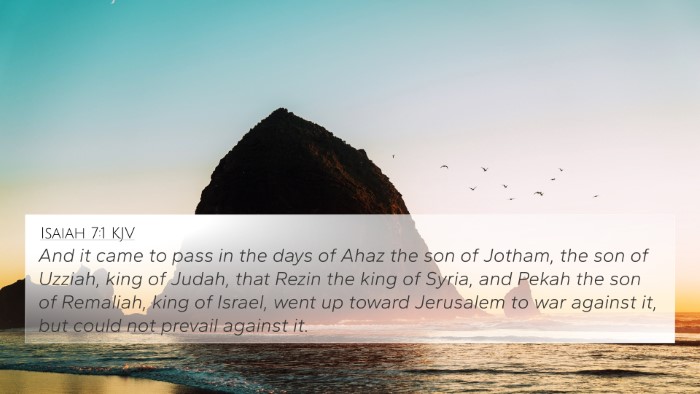Understanding Isaiah 11:13
Isaiah 11:13 states:
"The envy also of Ephraim shall depart, and the adversaries of Judah shall be cut off: Ephraim shall not envy Judah, and Judah shall not vex Ephraim." (Isaiah 11:13, KJV)
Summary of Isaiah 11:13 Meanings
This verse speaks about a future time of peace and unity among the divided kingdoms of Israel (Ephraim) and Judah. The underlying message is one of reconciliation and the end of hostilities that existed historically between these two regions.
Insights from Public Domain Commentaries
- Matthew Henry:
Henry emphasizes the theme of restoration in this verse, illustrating God's promise to remove jealousy and strife from the hearts of Ephraim and Judah. He notes that this unity reflects the work of the Messiah in establishing peace among His people.
- Albert Barnes:
Barnes explains that this verse symbolizes the end of internal conflicts in Israel, looking forward to the era of the Messiah who will restore harmony and eliminate hostilities. He draws connections to the larger prophetic theme of coming peace and justice.
- Adam Clarke:
Clarke discusses the historical context of the rivalry between Ephraim and Judah, highlighting the futility of such envy in the forthcoming divine kingdom under Christ. He asserts that believers can find comfort in the assurance of unity among God's people.
Cross-References and Related Verses
Isaiah 11:13 can be understood in relation to several other Bible verses that address themes of peace, unity, and the work of the Messiah. Here are some significant cross-references:
- Isaiah 2:4: This verse predicts a time when nations will not take up swords against one another, embodying the spirit of peace that Isaiah 11:13 indicates.
- Micah 5:5: Proclaims that the Messiah will bring peace, reinforcing that the divisions will vanish.
- Jeremiah 31:31-34: Speaks of a new covenant God will make, leading to deeper relationships and reconciliation.
- Romans 15:5-7: Paul encourages the unity of believers as a reflection of Christ's acceptance, echoing the sentiments of peace in Isaiah.
- Ephesians 2:14-16: Discusses Christ as our peace, destroying barriers between people and bringing unity.
- Galatians 3:28: Highlights the equality of all believers in Christ, suggesting a similar theme of unity.
- Isaiah 9:6: Refers to the coming Messiah, describing Him as the "Prince of Peace," reaffirming the types of peace referenced in Isaiah 11:13.
Thematic Connections and Analysis
The themes of reconciliation and unity presented in Isaiah 11:13 are central to many biblical narratives.
Linkage with Other Biblical Themes
- Restoration:
Both the Old and New Testaments convey God’s ultimate plan for restoration among His people, as seen through various prophets.
- Messianic Hope:
The expectation of the Messiah as a unifying figure is a common narrative that extends from Isaiah through to the Gospels.
- Divine Peace:
The concept of peace is repeatedly emphasized throughout the Bible, with Isaiah 11:13 serving as a profound revelation of that promise.
Tools for Bible Cross-Referencing
For deeper study, utilizing tools dedicated to cross-referencing can enhance your understanding of how Isaiah 11:13 fits within the broader biblical context. Some suggested methods include:
- Using a Bible concordance to locate verses with similar keywords.
- Employing a Bible cross-reference guide to find thematic connections.
- Engaging in cross-reference Bible study to explore how different verses relate conceptually.
- Consulting Bible reference resources for extensive examination of scriptural ties.
Conclusion
Isaiah 11:13 holds a significant place in biblical prophecy, offering hope for unity and restoration in the face of historical division. Recognizing its connections to other scriptures provides a deeper understanding of God's redemptive plan. By studying these cross-references, believers can appreciate the overarching message of peace that permeates the Bible.

